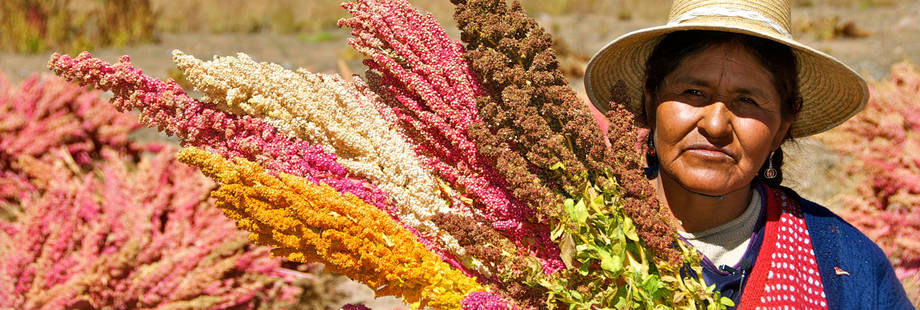Empowering the Rural Poor
One in five people in developing countries live on less than US$1.9 a day, and most live in rural areas. They depend directly on small-scale farming, forest resources, livestock and fishing for their subsistence.
Reducing rural poverty by empowering people.
Investing in people, and strengthening producer organizations and rural institutions, is key to developing a more inclusive agricultural sector. Such investments have enormous potential to generate economic growth that is equitable and reduces rural poverty.
FAO works with member states and partners to design and implement rural development and poverty reduction strategies, where the participation and institutions of the rural poor is critical. This work focuses on increasing poor rural household’s access to knowledge and technology, advisory and financial services, and decent employment. It increases their ability to manage natural resources; connects them to agricultural value chains to improve access to markets; provides social protection, especially for women, youth and indigenous people
Key policy messages
- Strengthen rural institutions such as producer organizations, cooperatives and networks: FAO supports policies that enhance dialogue between small-scale producers, government agencies and private stakeholders. These policies strengthen the collective voice of farmers, pastoralists and fisherfolk in local and national policy-making and increase access to agricultural markets, savings and credit facilities.
- Empower small-scale rural producers through policy: FAO aims to reduce rural poverty by supporting policies, which make it easier to self-manage land and productive resources, access social and financial services, as well as national and export markets. Policies address gender inequalities, as well as the special roles and needs of indigenous people.
- Increase small-scale rural producer’s access to information and resources: FAO supports equal access to technology, agricultural knowledge and market information through policies, which boost rural education for men and women using modern information technology and innovation in the provision of advisory services.
- Economically empower small-scale farmers, fisher folk, pastoralists, and forest-dependent communities: FAO supports market and trade policies, which drive development, strengthen food security, reduce poverty and maximize environmental sustainability. Preserving flexibility in national policy options, allows developing countries to balance the needs of poor consumers and rural producers.
- Empower the rural poor to achieve the Sustainable Development Goals (SDG’s) by 2030. Solving issues with access and empowerment are necessary to achieve the Goal 1 targets on eradicating extreme poverty, reducing those living in poverty by at least half, ensuring equal rights to access resources, and reducing inequality overall.
Featured resources


Case study
Dimitra Newsletter April 2019 – Issue #30. Special Edition, Dimitra Clubs in Action


Issue paper
Enabling young rural women to participate in rural transformation in East and Southern Africa



